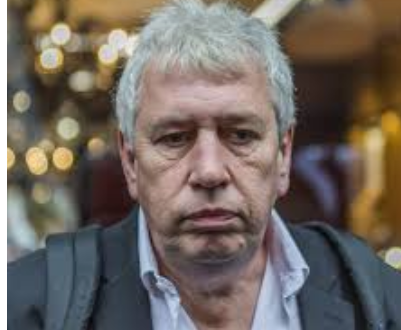Baroness Warsi will today make a speech in which she will express fears that Islamophobia has ““passed the dinner-table test” and is seen by many as normal and uncontroversial”.
I think that she is correct to raise the concern. It is important to appreciate the nature of the problem. Many people in this country are worried about the growth of radical Islamist politics and of Muslim separatism. For most, I would hope that a generalised anti-Muslim bigotry hasn’t yet taken hold. People know that there is something wrong when they see hate preachers attracting large audiences, or radical institutions pushing a divisive and extreme politics. However, they also think of their Muslim friends and colleagues and know that they are not the problem. However, for others, the idea has taken hold that Islam in all its manifestations is a threat, and that British Muslims are unwelcome guests. To be a Muslim, in this climate, is a miserable thing.
This is what Baroness Warsi will say:
Lady Warsi will blame “the patronising, superficial way faith is discussed in certain quarters, including the media”. The peer will describe how prejudice against Muslims has grown along with their numbers, partly because of the way they are often portrayed.
The notion that all followers of Islam can be described either as “moderate” or “extremist” can fuel misunderstanding and intolerance, she will say.
“It’s not a big leap of imagination to predict where the talk of ‘moderate’ Muslims leads; in the factory, where they’ve just hired a Muslim worker, the boss says to his employees: ‘Not to worry, he’s only fairly Muslim’.
“In the school, the kids say: ‘The family next door are Muslim but they’re not too bad’.
“And in the road, as a woman walks past wearing a burka, the passers-by think: ‘That woman’s either oppressed or is making a political statement’.”
It is precisely this low level, corrosive mistrust which undermines our society and makes it more difficult to combat Islamist political parties and hate preachers. Baroness Warsi is also correct to identify the drip-drip-drip of facile, negative reporting – often based on made up or trivial stories of the “Muslims Cancel Christmas” variety – as a major factor that fuels hatred of Muslims. Hope not Hate has campaigned hard around this issue, as has Quilliam.
There is another problem, too, with which the Tories have yet to get fully to grips. It is this.
Over the past couple of decades, a number of very energetic institutions, aligned with Islamist political parties, have been pushing extreme and vicious theology and politics. These institutions, and their politics, have been both promoted and defended as “mainstream”, and criticism of them is routinely denounced as Islamophobic. This is despite the fact that, were such views expressed by any other religious or political grouping, they’d be immediately denounced as abhorrent.
There is a very good example of this phenomenon at work on the Guardian today. Masood Khan has made a documentary about the Luton Islamic Centre, which he portrays as an example of “British Muslims’ efforts to combat extremism“. He says:
The first film in the series, The Struggle Within, looks at Luton Muslims Farasat latif and Abdur Rehman, who follow the orthodox Salafi school of thought. Salifis are often derided in the press as extremist nut-jobs. But while they dress the same and have beards, there the similarity ends. For almost the last 20 years they have been trying to persuade Muslims not to get involved with groups like al-Muhajiroun, who they believe distort Islam.
Masood Khan is arguing that the Luton Salafis are not extremists, because they oppose Al Muhajiroun. But let’s put this in context. They also regard literally every other group of Muslims as “deviated sects“. Instead, they promote their own religious agenda, which includes advocating the execution of homosexuals, teaching that the Jews are the eternal enemies of the Muslims, and promoting the lectures of the banned hate preacher, Bilal Phillips, who endorses suicide bombing.
When you promote and praise a group like the Luton Islamic Centre, you create the impression that – as far as Muslims go – this is mainstream. It is also impossible effectively to condemn groups like the English Defence League and the British National Party on the grounds that they promote division and bigotry, while giving the Luton Islamic Centre a pass when it does precisely the same thing.
There is a similar effect, when the Government bans a nasty hate preacher like Zakir Naik, and “mainstream” Muslim organisations such as the Muslim Council of Britain react with anger.
Baroness Warsi impressed us all when she was attacked by Al Muhajiroun and fought back. She impressed us considerably less by publicly disagreeing with David Cameron over the Global Peace and Unity Event, which showcased hate preachers and supporters of terrorism, but which she wanted to attend.
Baroness Warsi is also compromised, I’m afraid, by her relationship with the scandal-prone Labour peer, Lord Ahmed. In 2005, Lord Ahmed campaigned against the Labour candidate, Shahid Malik, and for Sayeeda Warsi. More recently, the two teamed up together to attack the Sufi Muslim Council, which they implied had “misappropriated government funding“. There was nothing in that business: but it was part of a pattern of Lord Ahmed’s support for Islamist and extremist institutions against their critics, which Warsi should have had no part in.
Lord Ahmed, who is inexplicably still a member of the Labour Party, more recently supported the Islamic Forum Europe’s favoured candidate, Lutfur Rahman. The Islamic Forum Europe is aligned with Jamaat-e-Islami. However, this is just one in a long line of disasterous decisions made by this Peer. You can search through the archives for the full picture. However, it was Lord Ahmed who hosted the neo Nazi Holocaust denier and Lukeshenko ally, “Israel Shamir” in the House of Lords. More recently, he gave the now-dead Al Qaeda militant, Abu Rideh a tour around the House. Last year, he signed up for a speaking event with senior Jamaat-e-Islami figures. He also openly supported the banned hate preacher, Zakir Naik.
Yet Baroness Warsi considers this man her ally.
I do not believe that Britain is fundamentally a country of bigots. Particularly within large cities, British people have friends from many different cultural backgrounds, who they value and cherish. However, when they hear hate preachers and those with extreme political views being defended as mainstream, many people just do not know what to think. Most, I’d hope, would not become anti-Muslim bigots. However, as a result, many do not defend Muslims against their haters as fiercely as they should.
There is a way of turning this around. At the moment most vicious politics and theology is being promoted in the United Kingdom by a handful of small organisations. They include Jamaat-e-Islami aligned institutions, such as the Islamic Forum Europe (now banned in Newham), various Muslim Brotherhood front organisations, the Salafi hate preachers who are promoted by the Islamic Education and Research Academy, Hizb ut Tahrir and Al Muhajiroun.
Harry’s Place has always been clear that the concern are these specific organisations, not “Muslims” or “Islam”. By identifying the institutions through which hate filled politics are promoted, it is possible to demystify the issue, and to treat the matter as simply another part of a wider anti-fascist struggle, which encompasses opposition to similar extremist groupings in other parts of British society, including the British National Party.
Baroness Warsi can do that very well, when it comes to opposing Al Muhajiroun. She should also take the opportunity in her speech to name Jamaat-e-Islami, the Muslim Brotherhood, and the various hate preachers associated with the IERA which Theresa May has banned.
However, her friendship with Lord Ahmed and her desire to attend the Global Peace and Unity Event makes me thing that, sadly, she is unlikely to do so.


